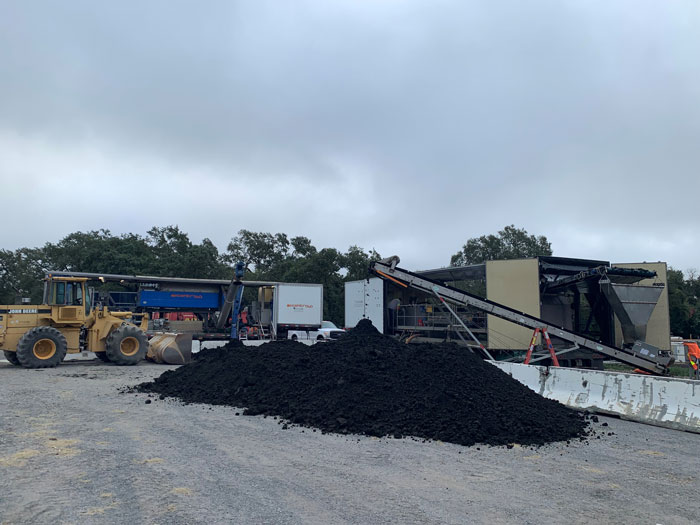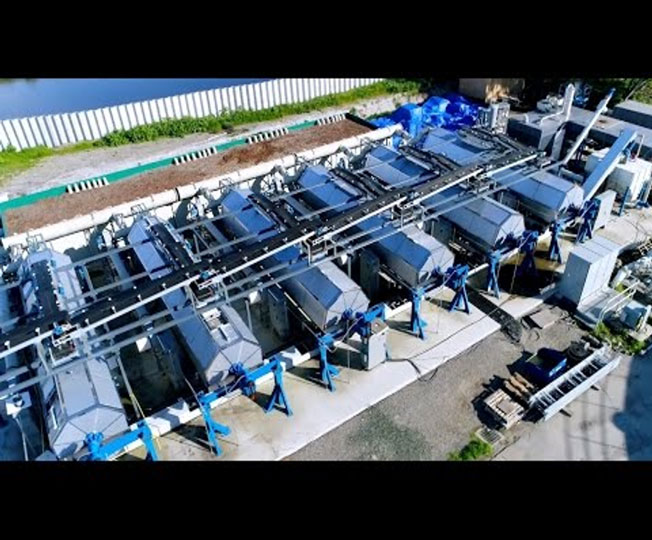
The Town of Windsor has received a technical assistance grant from the federal Department of Energy (DOE) to further evaluate the risks and benefits of a project that would convert the Town’s wastewater sludge (biosolids) into high-performance, consumer ready fertilizer and soil amendment, cut Windsor’s greenhouse gas (GHG) emissions, and help stabilize future impacts to ratepayers.
The Biosolids Handling Facility project is designed to convert the wastewater sludge produced at the Town’s Water Reclamation Facility into Class A biosolids, a classification that allows its beneficial and unrestricted reuse as fertilizer and soil amendment. It would also reduce GHG emissions by 90% for the sludge removal process by capturing and sequestering carbon-based compounds as well as eliminating the need to truck the material to an offsite facility. Currently, the Town spends about $1 million annually for a contractor to haul the sludge for disposal as Class B biosolids.

Costs for sludge hauling have continued to increase and have an impact on ratepayers. It is expected that the project would hold down costs and help to stabilize wastewater rates for Windsor residents. Estimated cost of the project is $50 million and the Town envisions using a combination of enterprise funds, state loans, with state and federal grants.
Most of the large wastewater treatment facilities in Northern California produce Class B biosolids, which has limited reuse options, or is required to be hauled offsite or to facilities that produce Class A biosolids. The Windsor project would bring the biosolids process under the Town’s control, and would allow the Town to provide Class A production to other regional wastewater agencies, who have shown interest in using the Town’s new biosolids handling facility as a regional processing center. Under such a scenario, the project would be designed to accommodate an additional volume of biosolids for processing to Class A standards.
According to the EPA, Class A biosolids can be sold to the public or land applied without further restrictions because of the level of treatment they receive. Class B biosolids are not treated to the same level and as such may be land applied with multiple site restrictions in place.
Last year the Town completed the 30% design and CEQA evaluation for the project and submitted a state loan application for the remaining design and construction costs. Assistance from the DOE’s National Renewal Energy Laboratory (NREL) will come in the form of technical assistance to Town staff to further evaluate the feasibility of the biodrying and pyrolysis technology that has been selected for the project. A significant benefit of the biodrying and pyrolysis technology is that it is demonstrated to remove PFAS (or per-and-polyfluoroalkyl substances), a group of chemicals found in consumer goods and household products that are now known to pose serious health risks. There is increased awareness and concern about the presence of PFAS in biosolids disposal.
Technical assistance from the NREL will include working with Town staff to conduct further evaluation of the biodrying and pyrolysis technology, given that it is still developing. The team will address the appropriateness of the technology for the size of the wastewater plant, evaluation of similar technology in use at similar size plants, concerns about air quality, the fate of PFAS in treatment, and if the technology can be reliably used to treat the specific biosolids in the Town of Windsor.
“Windsor is excited to become an industry leader in biosolids handling through this project,” said Cotulla. “But we want to be certain we proceed in a responsible way and ensure that all the fiscal and environmental impacts are thoroughly evaluated.”
It is anticipated that the NREL technical assistance will start this fall.